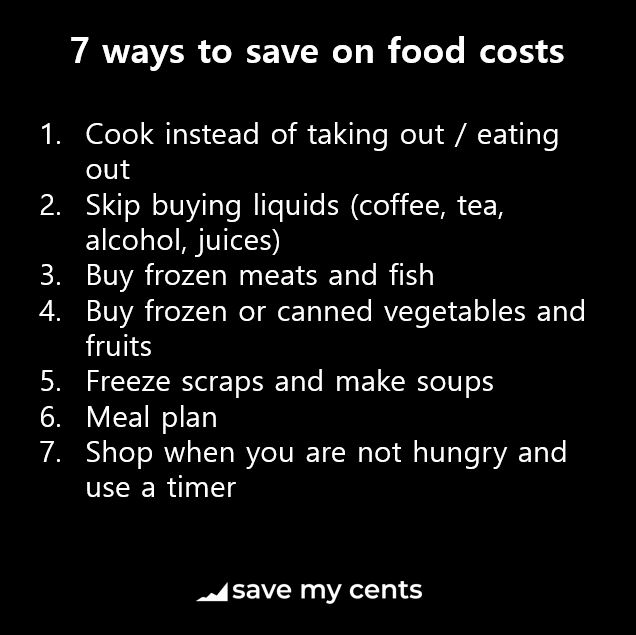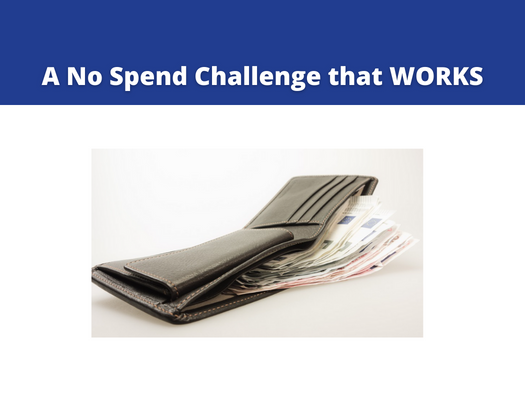This is the mindset I am talking about: Food is fuel. The quality and kind of food that that I eat does not define my self worth.
All too many times, I see people equate eating gourmet food with wealth. That is not necessarily the case. For me, I think it is important that you can keep to a diet that is healthy for your needs and nourishes you. I am not going to recommend any particular diet, I think that’s for you to decide. However, here are some of the most common ways you can significantly cut back on food costs.
Cook in instead of take-out / eating out
This one should be pretty obvious. The average meal per person costs anywhere between $2 – 7 per serving, whereas an equivalent meal would cost $10 and up when taking out or eating out (unless you count unhealthy fast food).
Skip paying for liquids
Wherever you can, avoid paying for alcohol, coffee, tea, juices, and water. I understand that for many people paying for water is a matter of safety, so this is only for those who live in areas with clean water. Mr. Save My Cents loves his gourmet coffee so he makes it at home. For me, if I am sick of water, I buy water flavoring to make it interesting.
Buy frozen meats and fish
Unless you are truly buying locally shipped goods, the majority of proteins in this country are shipped frozen – this includes meats and fish – and then are defrosted in the back of the supermarket and served looking non-frozen. I am a big fan of the big Trader Joe’s bags of frozen chicken breasts and thighs, and I rarely buy fish fresh.
Buy frozen or canned vegetables and fruit
Again this is up to your personal comfort, but many fruits and veggies actually retain more of their peak freshness and nutrients upon canning and freezing. I buy almost all of my green beans, broccoli, berries, frozen. I buy canned corn, tomatoes.
Freeze scraps to make soups
We throw up to 40% of groceries away each year!!! That’s a lot of wasted money! Freeze your produce and your scraps and make soups instead. Vegetable broth based soups are healthy and easy on the wallet. I often have a bin full of scraps such as onions ends, garlic bits, extra veggies, extra herbs, just for this.
Meal plan so that your leftovers turn into new meals in a few days
A common misconception about meal planning is that every meal has to look different. For me, it’s all about efficiency. If I have a lot of broccoli one week, then I’m going to find a way to incorporate broccoli for a few days, before moving on to the next ingredient. If I have leftover chicken one day, it can be a pizza topping or a soup inclusion the next. Leftover rice can be made into fried rice. This not only reduces food waste, but also keeps your meals interesting.
Shop when you are not hungry, and time yourself
When we are hungry, the hunger signals override the rational part of our brain and can cause us to make more impulse purchases. The longer we linger in a retail store, the more easily the in-store marketing and displays can entice us to buy something we don’t want. That is why I try to make my grocery shopping trips as quickly as possible and I tend to do them very early in the morning or after dinner.
Here’s a quick graphic that you can pin to pinterest / save to summarize

Join my Facebook group to never miss an in-depth blog post. For daily personal finance advice, follow me on Instagram
Want to learn a way not to lose your mind while dealing with pandemic? Would you like to know the system that allowed me to pull back on my own spending when I saved my way to FI/RE? Check out my Five Weeks to Abundance course – grounded in psychology and neuroscience, it is guaranteed to help you achieve a more peaceful and joyful state of mind.










